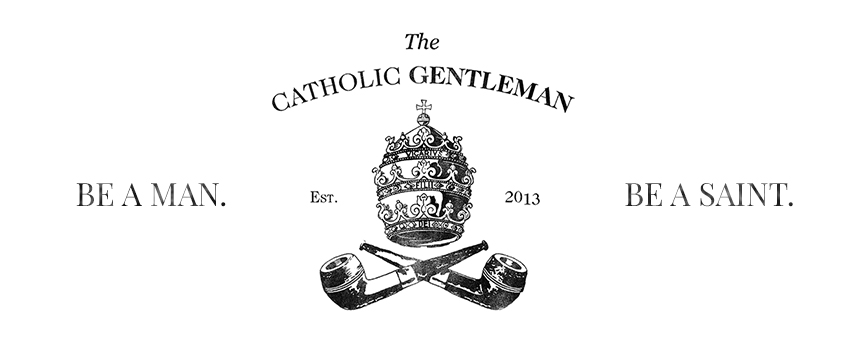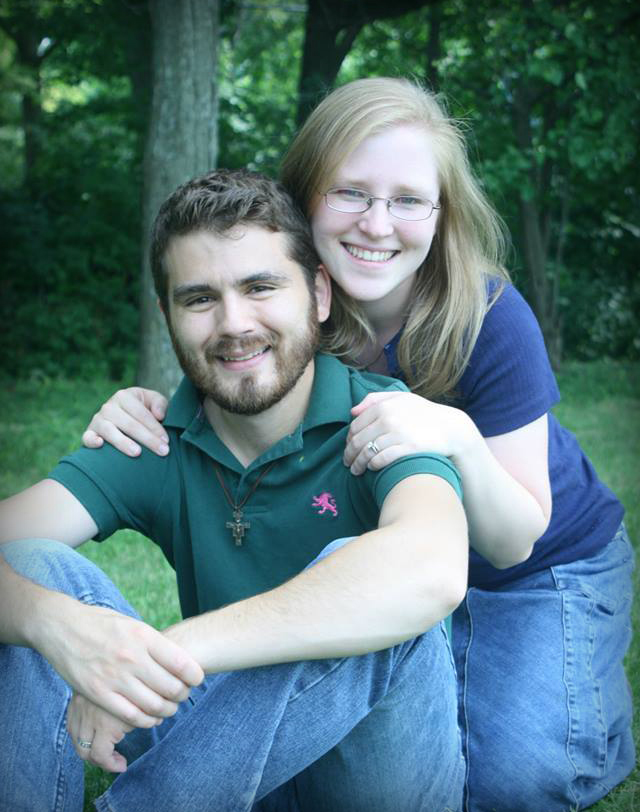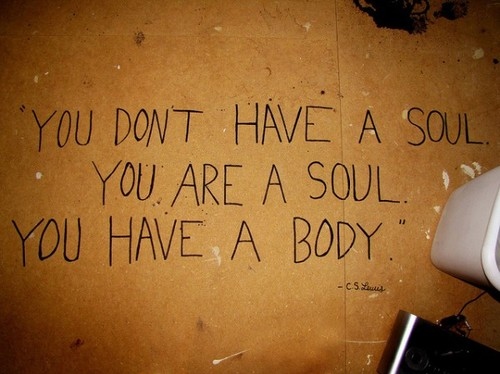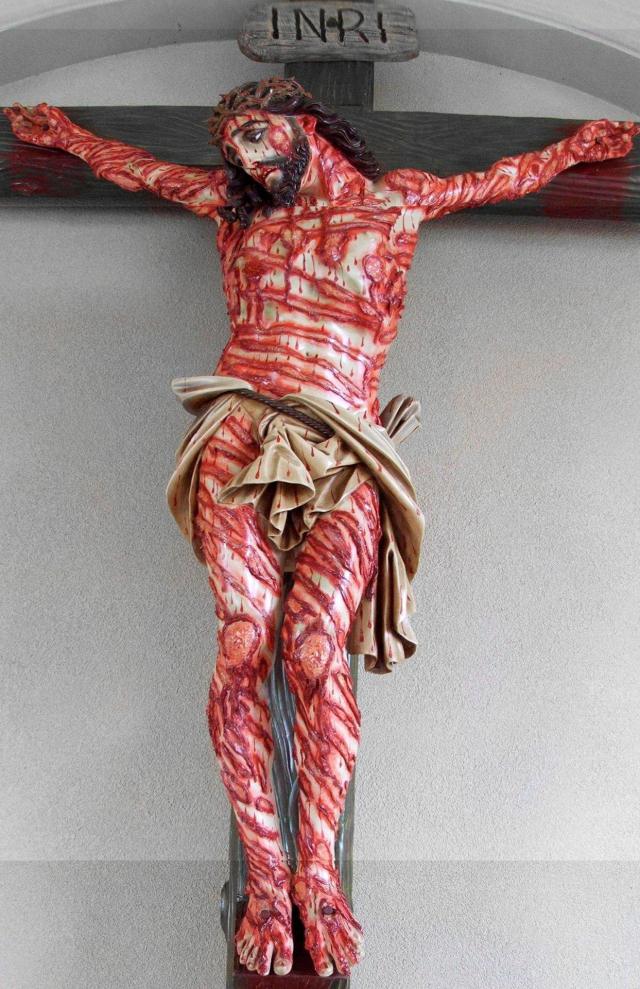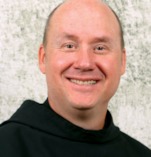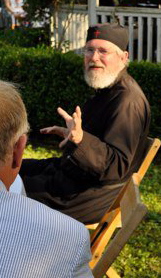
The “cause” for the canonization of Archbishop Sheen (1895-1979) was opened in 2002. The enthusiasm for the cause of a deceased holy person of heroic virtue is called its “cultus”, or cult, in the most positive sense of the word. The enthusiasm by those who hold a special devotion to the Virgin Mary is her “cult”. Get it?
I attended an informal informational meeting in Chicago a while ago on the status of the good archbishop’s cause. Very interesting, to say the least. His beloved memory now bears the title Venerable. The Vatican is very interested in his cause, as he would be the ONLY beati to have won an Emmy!!! Take THAT modern media!!! A SAINT amongst ye!!!
Only Catholics could create the current situation though, sadly. Catholics!!!!!!!! Grrrrrrr!!!!! 🙁 . The cause is currently in stasis. 🙁 Miracles are good to go, except the good archbishop was buried in New York, where he did much of his work and ministry. His home diocese, where any cause must begin, is in Peoria, IL.
Wait!!!! It gets better!!! Part of the official process of canonization is there must be a formal, very formal, examination of the remains of the candidate of heroic virtue in the home diocese, called the “elevation” of the remains, to a place of honor and respect, and the removal, get your Catholic dictionaries out!, of the “first class” relics, i.e. actual parts of the remains!
You guessed it!!!! There is a kerfuffle!!! It seems New York, typical, after many, many promises to release the remains and remove them to Peoria, has reneged. Internal Church politics stands in the way of sainthood!!! There is no current Church process around this!!!! So, we’re and the good archbishop’s cause is stuck!!! Do you see why the typical expression in the Vatican is “Come and see me on Wednesday, and I’ll get back to you in 300 years!!!!! Catholics!!!! My greatest frustrations in the life of faith are Catholics!!!!! I pray for that same Spirit who comforted the Lord with His Keystone Cops Apostles!!!! 🙁 Who knows WHAT generation of our children may yet enjoy this great celebration. 🙁
http://www.archbishopsheencause.org/

-by Casey Chalk, a “revert” to the Catholic Church, who was raised Catholic, left the Church with his parents for Evangelicalism & Presbyterianism, spent time in Thailand, and has now returned to the Church of his birth.
“A good friend and elder at my former Presbyterian (PCA) church once invited me over for beers and conversation several months after my decision to become a Catholic. In that exchange, he expressed what he termed as his predominant concern with my entrance into the Catholic Church: that the decision embraced a form of sacerdotalism, effectively putting certain individuals – be they priests, bishops, cardinals, or the pope – or even the institutional church, between the individual and God. This mediated reality, my friend believed, was in some sense an affront to Biblical Christianity, presumably because it obscured or obstructed the primary mediatory role of Jesus Christ, the God-man. Venerable Fulton J. Sheen, one of the most iconic American Catholic figures of the 20th century, would respectfully disagree.
Fulton Sheen died on this day 36 years ago: December 9th, 1979, before I was even born. Yet his influence is felt far beyond the end of his earthly life and reaches far beyond the millions of American radio listeners and television viewers he reached. Even the Redemptorist parish I attend in Bangkok, Holy Redeemer Catholic Church, bears Sheen’s mark. The architectural design of the parish, built to model the traditional Thai Buddhist wat, was an idea suggested by Sheen himself during a visit to Thailand.
Sheen’s writings and teachings likewise continue to influence Christians and non-Christians the world over, largely because Sheen so accurately recognized philosophical and religious trends that increasingly were dominating our culture. Take for example the individualist tendencies of our current age, asserting that no institution or denomination is needed between man and God. Many people, even those with robust prayer lives or strong convictions in historical doctrines regarding Christ or Holy Scripture, hold such a “low church” position. Indeed, some form the limits of their Christian experience around the reading of the Bible or other spiritual literature, listening to podcasts or sermons in the privacy of their homes or cars, and maybe the occasional Bible study or prayer group.1 To this popular, commonly Protestant trend, Sheen’s The Mystical Body of Christ offers a surprisingly Scriptural critique. Indeed, Sheen’s presentation of the Church as Christ intended and directs it stands in contrast even to those Protestants – be they Reformed, Evangelical, or Mainline – who affirm some conception of the visible Church, since, Sheen argues, even these efforts lack a fully Biblical account of the Church as Christ’s very own mystical body.
Biblical Foundations for the Mystical Body of Christ
Sheen begins by citing Fr. Emil Mersch – who observed that the New Testament’s use of “kingdom,” “mystery,” and “life” all appeal to different aspects of the same reality: the mystical body of Christ2. Sheen argues that the Mystical Body is not an abstraction, but “something visible and invisible, something tangible and intangible, something human and something Divine; it refers to a reality which is the subject of attribution, of properties and rights, to an organism with a supernatural soul, to a prolonged Incarnation, to the extension of Bethlehem and Jerusalem to our own days, to the contemporary Christ: the Church.3 We share a bond with Jesus quite different than what we might share with any other religious teacher or philosopher: a life of which we are partakers, in His earthly life, His glorified life, and His mystical life.4 The third of these, the mystical life, He continues to live through us by means of His Holy Spirit, which was given quite publicly to the visible Church at Pentecost.5
In this reality, Christ is the Head, His people are His body: “Christ is our contemporary.”6 With exacting exegetical detail of the Biblical texts, Sheen demonstrates that one cannot separate Christ from His mystical body, and that the “spiritual, not religious” Christian ideal is untenable. Christ identified Himself too intimately with His followers to believe otherwise: Sheen notes that our Lord taught that He and His body would be one, referring to such Gospel passages as the vine and the branches (John 15:5), or “He that heareth you, heareth me” (Luke 10:16).7
Also central to this argument is Sheen’s analysis that St. Paul’s language of the body of Christ in 1 Corinthians must be properly understood not as a post-facto Pauline analogy, but as a reality that preceded the Apostles in the very life of Christ.8 Indeed, it was Christ Himself who said he would assume another body in John 20:17.9 The Church would be this body, not physically or morally, but mystically and intimately united to the risen and ascended Christ. Sheen helpfully articulates:
‘He said that whatever happened to Him as Head would happen to His Body; if He was persecuted His Body would be persecuted; if He was hated His Body would be hated; if the world did not receive Him it would not receive His Body, for the servant is not above the master…. The relation would be so close between the members of that Body and Himself, that anyone [who performed a work of mercy for one His members] would be doing the service unto Him. It would seem that He had exhausted all analogies to mark the unity between Him and His new body; but the night before He died, He said that He and His flock were not to be one merely as shepherd and sheep, they were to be one as He and the Father are one.10’
The Mystical Body of Christ is His Church
Building upon this identification of Christ with His Church, St. Paul and St. John extend these analogies of mystical union to include a building (1 Corinthians 3) and marriage (Ephesians 5, 2 Corinthians 11, Revelation 19, 21).11 The Church effectively extends Christ “beyond the space of Palestine and the space of thirty-three years to prolong His influence unto all times and to all men.” “Without the Church,” Sheen asserts, “Christ would be incomplete,” for the Church continues the Incarnation.12 The “actions of the Mystical body are the actions of Christ.”13 Through Christ, the ultimate prophet, priest and king, the Church would extend “His posthumous Self, His prolonged Personality… Very simply they were to do the same three things as He had done in His earthly life: they were to teach, to govern, and to sanctify.”14 These include the Church’s mission to baptize, to perform the Eucharist, and to forgive sins (Matthew 28, Luke 22, 1 Corinthians 11, John 20).15 Sheen’s analysis strikes at the heart of much contemporary Christian spirituality and Protestant religiosity:
‘How far removed is this doctrine of the Church from the false conception of those who would accuse the Church of standing between Christ and us? How often we hear it said: “I do not want an organization between Christ and me,” or “True religion consists in union with Jesus of Nazareth without priest, or prelate, or sacrament.” Anyone who understands the Scriptures will see that the Church does not stand between Christ and me. The Church is Christ16’
The Church, if she is truly Christ’s mystical body, cannot then be some voluntary organization, as if the Apostles heard Christ’s message and on the “basis of their common faith” agreed to form a religious society. No, Sheen declares, the Church began “the very moment” the Word became flesh and dwelt among us.17 Anyone then who claims the visible, institutional Church and its sacramental system is an “obstacle” to a relationship with Christ has misunderstood “the meaning and beauty of the Incarnation of our Lord.”18 Through the Church, Bethlehem is revived in every baptism, “the Cenacle in every Mass, the instruction of the doctors of the Temple in every definition, the pardon of Peter in every absolution, and the Crucifixion in every persecution.”19 Rather than an obstacle to relationship with Christ, the Church is the very means by which that relationship is fostered.
The Catholic Church as Christ’s Mystical Body, Preserved by the Holy Spirit
Christ is of course the head of this mystical body – per St. Paul’s teaching in Colossians 1:18. Yet if Christ is the head, one might reasonably ask, which conflicting group or sect within Christianity is the “one Body of Christ”?20 According to Sheen, the “obvious way” for Christ to identify His post-ascension body would be “through a visible head or a primate.”21 This is appropriate, he contends, because the “democratic form of government” visible in many forms of Protestantism is problematically individualistic:
‘…each individual [is] his own supreme authority, allowing him either to interpret the Scriptures privately or else interpret his own religious experiences without any dictation from without. Religion on this theory is a purely individual affair: each one casts his own vote as to what he will believe, rejects all creeds, beliefs, and dogmas which run counter to his moods and prejudices, determines for himself the kind of a God he will adore, the kind of an altar before which he will kneel – in a word, he worships at the shrines his own hands have made.22’
Rather than this subjective, individualist model, Christ gave us what Sheen calls the “monarchical” model, citing Matthew 16, where He rejects both what “men say” about who He is, and even what the Apostles together say about who He is (the “aristocratic model”), but ultimately affirming St. Peter’s declaration that He is the son of the living God.23 Peter had divine assistance, the keys to the kingdom (Matthew 16), and the commission to feed Christ’s lambs (John 21). This is not to say that St. Peter is “a Head apart from Christ.” Rather, he is “one authority with Him,” the “visible representation, the concrete symbol, the vicar of the Sender among the Sent.”24
Sheen further argues that it was the Holy Spirit who conceived the Church in the incarnation, guided St. Peter’s declaration of Christ’s divinity, and who remains its very soul, and speaks first not through inspired writings, but a “voice,” carried by the Apostles and their successors.25 This is to contrast the Catholic conception of Holy Tradition, Holy Scripture, and magisterial teaching, as cooperating spheres of authority, against the Protestant doctrine of sola scriptura. Indeed, it was the Holy Spirit, acting as the soul of the Church, who inspired the writings of Holy Scripture and guided their collection and inclusion into a canon. The Bible stands not on its own but “within the life of the Church.” It is the Church that “makes its meaning clear.”26 And if the Holy Spirit is the soul of the Church, “there can be no contradiction, no variety of opinions, no divided loyalties, no half-truths, no schisms, no heresy where God is.”27
Moreover, the Holy Spirit vivifies the Church to maintain its four marks so that neither sin nor scandal within the ranks can nullify her intrinsic holiness.28 Sheen observes, “the world has yet to point out a single age in which the Church has not produced her heroes whom she calls saints.”29 The last mark, the Church’s apostolic character, is best understood within the Catholic paradigm as requiring a discernible “origin or source.” Sheen elaborates: “it would be too late for her to begin sixteen hundred years after the life or our Lord; it would be too late for her to begin even twenty years after the life of Christ. She must be in intimate contact with Him from the beginning.” He cites several pieces of evidence of this from Scripture and history. These include the choosing of Matthias (a witness to the resurrection) to replace Judas in Acts 2 and the centrality of the appeal to Apostolic origin by the immediate successors of the Apostles: “Everywhere in the early Church the test was: ‘What is the source of your authority and truth?’ It if did not come from Christ and the apostles, it was false.”30 What a remarkable testament it is that the Catholic Church, longer than any nation, empire, or heretical movement has withstood the test of time: “Who today venerates Eutyches? Where are his disciples? Who today knows of Novatian?”31 Because it is the Holy Spirit alive within the Church, she cannot be killed.32
Further Implications of the Mystical Body of Christ
Having presented His biblical argument for the Mystical body of Christ — and that it be identified with the Catholic Church — Sheen devotes the remainder of his book to exploring many other realities that flow from this initial truth: the infallibility and unique authority of the Church, the role of the priesthood and individual Christians in this mystical body, the communion of the saints, the value of reparation, and the expansion of the body throughout the entire world. 33 Of particular interest to Protestants investigating Catholicism, Sheen devotes a chapter to the role of Mary, the mother of God, as mother also of His mystical body. The bishop explains that this is a natural logical progress: “if the fullness of Christ embraces not only His historical Life in Galilee but also His Mystical Life in the Church, then should not Mary be not only the Mother of the physical Christ, but also the Mother of the fullness of Christ or the Mother of the Church?”34 Also of potential interest to Protestants are chapters on how the sacrifice of the cross is translated to the sacrifice of the Mass, Sheen arguing that the sacrifice of the Cross is “complete and perfect in it itself,” yet “not complete as regards us; the merits of that great redemptive act have to flow unto us.”35 The Eucharist then serves to project Christ’s sacrifice into the present: “the Mass is the one thing in the world which makes it possible for us who live in the [present age] to share in the sacrifice of Calvary…. The Mass is Calvary realized, made present, contemporized, lifted out of the limit of space and time living in the members of the Mystical Body….36
The Mystical Body of Christ is a helpful – nay, essential – concept for how Christians should understand their role individually and corporately to Christ their Lord and Savior. This is the way Christ wanted it: for His Church to be the extension of His earthly ministry projected through time and space to our present era. To respond to the legitimate concern of my Presbyterian elder friend: Christianity at its core is sacerdotal — the Incarnation, the beginning of the Church on earth, exemplifies God’s extension of grace to Christians through matter. Christ then, fully God and fully man, is Himself a sacerdotal figure, mediating between man and God in His very flesh. It is entirely fitting then that Christ would appoint members of His own mystical body to do exactly what He had done: bear God’s authority and mediate between members of His body and the eternal God. In Sheen’s analysis, this does not detract from Christ’s mediatory role; it preserves and perfects it.37
Venerable Fulton Sheen, one of America’s great defenders and explicators of the Catholic faith, pray for us!
- Sheen’s own critique of Protestantism is quite prescient. In his 1935 introduction to the book, he notes that Protestant churches “no longer claim to be Divine or to be Deposits of Revelation.” He asserts that Protestantism has been reduced to “the individualistic type of religion in which each man’s subjective religious experience determines the God he will worship and the altar he will serve,” or a “purely social form of religion.” See Fulton J. Sheen, The Mystical Body of Christ (Ave Maria Press, Notre Dame, IN, 2015), p. 2.
- The reader should take note that in addition to the extensive Biblical exegesis Sheen offers in the main body of his work, the footnotes of the text supply a wealth of additional Biblical references and analysis that should not be overlooked.
- Sheen, p. 5.
- Sheen, p. 7.
- Sheen, p. 15.
- Sheen, p. 18.
- Sheen, p. 20.
- Sheen, p. 56.
- Sheen, p. 37.
- Sheen, p. 27.
- Sheen, p. 29.
- Sheen, p. 41.
- Sheen, pp. 42-43.
- Sheen, p. 45.
- Sheen, p. 32.
- Sheen, p. 33.
- Sheen, p. 48.
- Sheen, p. 49.
- Sheen, p. 50.
- Sheen, p. 51.
- Sheen elsewhere explains that baptism is the mechanism for incorporation into the Mystical Body of Christ. See Sheen, p. 298.
- Sheen, p. 57.
- Sheen, p. 58.
- Sheen, p. 59.
- Sheen, pp. 61-63.
- Sheen, p. 66.
- Sheen, p. 304. Sheen extensively highlights the evidence for the historicity of the primacy of St. Peter and Rome in his footnotes for Chapter Three. See Sheen, pp. 305-308.
- Sheen, p. 75.
- Sheen, p. 79.
- Sheen, p. 81.
- Sheen devotes an entire chapter to explaining how scandals in the Church can be reconciled with her role as Christ’s mystical body. In rhetorical flourish typical of the bishop, Sheen exhorts the Church’s detractors to “reveal the worst, for it will only help to make clear her true nature.” See Sheen, p. 99.
- Sheen, p. 85.
- Sheen, pp. 86-88.
- Sheen, p. 91.
- Sheen, p. 96.
- Sheen argues that “the Infallibility of the Church is nothing more than the Infallibility of Christ,” and asks rhetorically whether the Holy Spirit died after Pentecost or the early councils of the Church. See Sheen, p. 117, 121. On the unique authority of the Church, Sheen observes, “a book could not preserve [Christ’s] authority, for the book needs interpretation, and who would interpret it?” See Sheen, p. 134.
- Sheen, p. 225.
- Sheen, p. 242.
- Sheen, p. 247, 249.
- It is in this book that one of Sheen’s most famous aphorisms can be found: They do “not really hate the Church; they hate only that which they mistakenly believe to be the Church.” See Sheen, p. 140.
Prayer for the Canonization of Venerable Fulton Sheen
Heavenly Father, source of all holiness, You raise up within the Church in every age men and women who serve with heroic love and dedication. You have blessed Your Church through the life and ministry of Your faithful servant, Archbishop Fulton J Sheen. He has written and spoken well of Your Divine Son, Jesus Christ, and was a true instrument of the Holy Spirit in touching the hearts of countless people.
If it be according to Your Will, for the honor and glory of the Most Holy Trinity and for the salvation of souls, we ask You to move the Church to proclaim him a saint. We ask this prayer through Jesus Christ, our Lord. Amen.
Imprimatur:
+Most Reverend Daniel R. Jenky, C.S.C., Bishop of Peoria
Love,
Matthew

